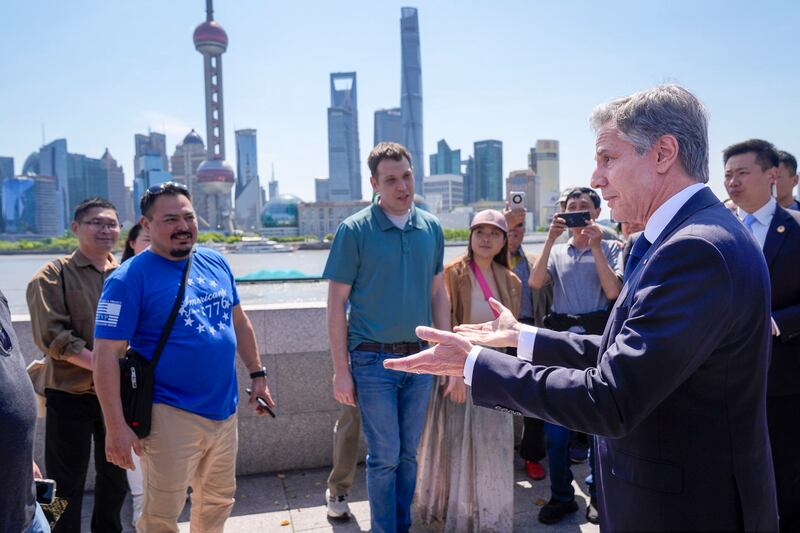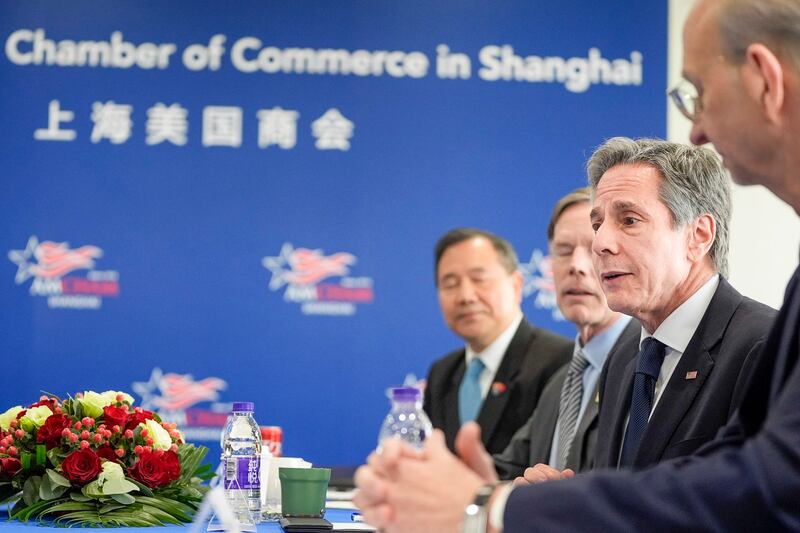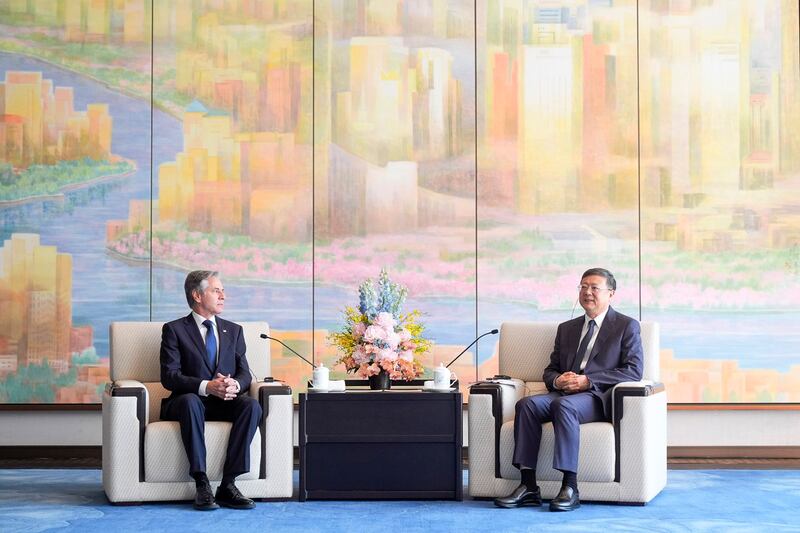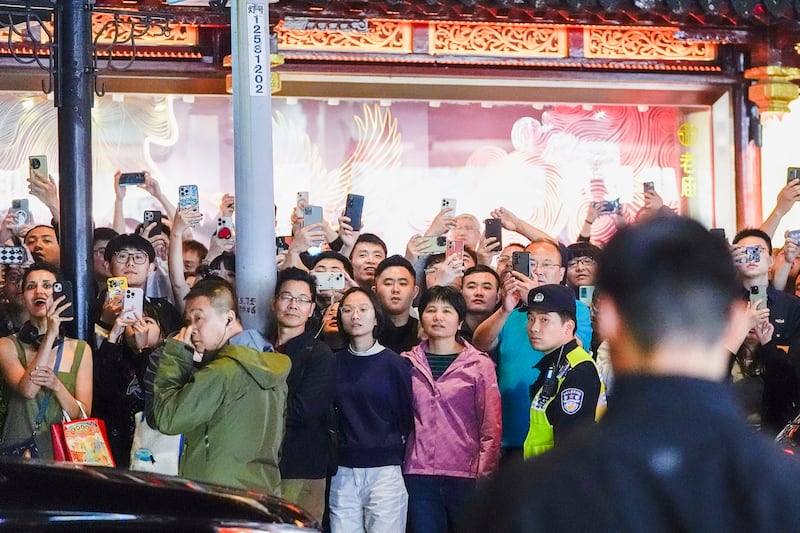In his first day of meetings with Chinese officials in Shanghai on Thursday, U.S. Secretary of State Antony Blinken continued to press the Biden administration’s concerns about trade policies it says are harming the development of competing American businesses.
Blinken is visiting China for the second time in the past year and met with local officials, as well as American businesspeople and students in the city that is the country's business, trade and financial hub.
He is also scheduled to visit Beijing on Friday for talks with Foreign Minister Wang Yi – and possibly also with President Xi Jinping, though American and Chinese officials say nothing is yet confirmed.
In Shanghai on Thursday, Blinken met the city’s local Communist Party secretary, Chen Jining. The pair engaged in “a constructive and candid exchange” about bilateral trade and Chinese industrial policies, according to State Department spokesman Matthew Miller.

The Biden administration has recently criticized Chinese subsidization of key exports, including green technology such as solar cells and batteries, which it says are " flooding" the markets with artificially cheap goods that prevent competing industries developing elsewhere.
Beijing has swept aside the criticism, though, and said the cheap goods are simply the result of China’s competitive advantages and are contributing to a reduction in surging inflation worldwide.
In his talks with Chen, Blinken nevertheless “raised concerns” about China’s trade policies and its “non-market economic practices,” Miller said, while stressing the need for “healthy economic competition.”
Mixed messages
Speaking prior to the talks, Chen had appeared chipper and noted Shanghai was the home to some 8,000 American businesses.
The city was keen to help to improve U.S.-China ties, he said.
“The relationship has not always been smooth. There have always been twists and turns,” Chen said of bilateral ties. “But, overall, it has progressed with historical development, and progressed forward.”

In Beijing, Chinese Foreign Ministry spokesman Wang Wenbin was less upbeat, using a press briefing to dismiss Blinken’s complaints.
“China carries out trade and economic cooperation in accordance with market principles, firmly supports the multilateral trade regime and fully abides by World Trade Organization rules,” Wenbin said, before calling for the United States to accept China’s trade advantages.
“We hope the U.S. will respect the principle of fair competition,” he said, “and work with China to create enabling conditions for the sound and steady growth of China-U.S. economic and trade relations.”
A preview of Blinken's visit from the Chinese Foreign Ministry also accused the United States of recently "ramping up efforts to curtail China's economic, trade and technological development."
The document describes the Biden administration's complaints about subsidies leading to " overcapacity" in China as "a misleading narrative hyped up by the U.S. side packaged in economic concepts."

“The real intention is to kneecap China's industrial development and put the U.S. in a more advantageous position in market competition,” it said. “It's another example of outright economic coercion and bullying.”
“China has made it clear to the U.S. side that to suppress China's technology sector is to curb China's high-quality development and deprive the Chinese people of their legitimate right to development.”
Russia support
Trade policy is not the only area of significant difference likely to generate “candid” discussions during Blinken’s three-day visit.
In Beijing on Friday, Blinken is likely to switch gears to focus on China's support for Russia's defense industrial base, which he said last week was "allowing Russia to continue the aggression against Ukraine."
“Let me stress again that China’s right to conduct normal trade and economic exchanges with Russia and other countries in the world … should not be interfered with or disrupted,” Wenbin said.
Wang defended China’s exports to Russia of so-called “dual-use” items that can be used for both military and general economic purposes, such as drones, machine tools, semiconductor chips and nitrocellulose, which is a key component of artillery gunpowder.
Beijing, he said, “oversees the export of dual-use articles in accordance with the laws and regulations,” which he appeared to contrast with direct U.S. support of weapons to Ukraine’s military.

For a relationship meant to be on the mend after the summit between Xi and U.S. President Joe Biden in San Francisco late last year, it’s a lot of friction to overcome in just three days of meetings.
Even China’s normally bellicose state-run tabloid The Global Times appeared unsure exactly how to characterize the trip.
"#China does not hold high expectations for #Blinken's visit," the outlet wrote in a post on X. "Yet even if Blinken aims to trade barbs with China this time, it's better to argue than to have a real conflict."
Edited by Malcolm Foster
